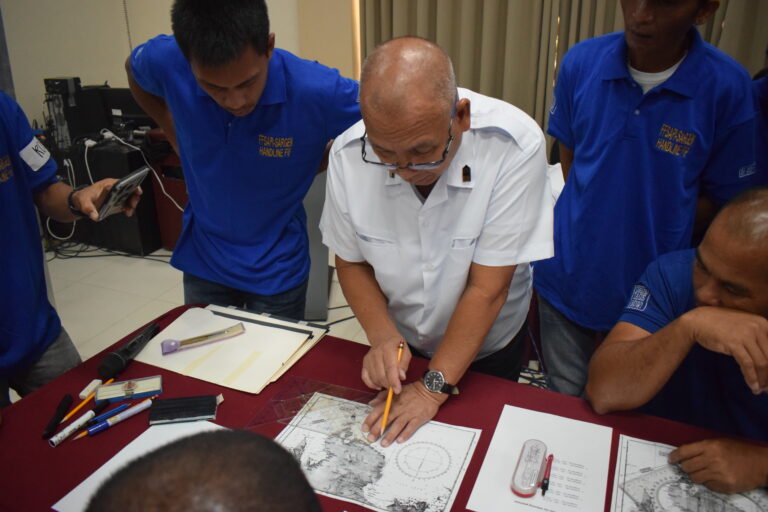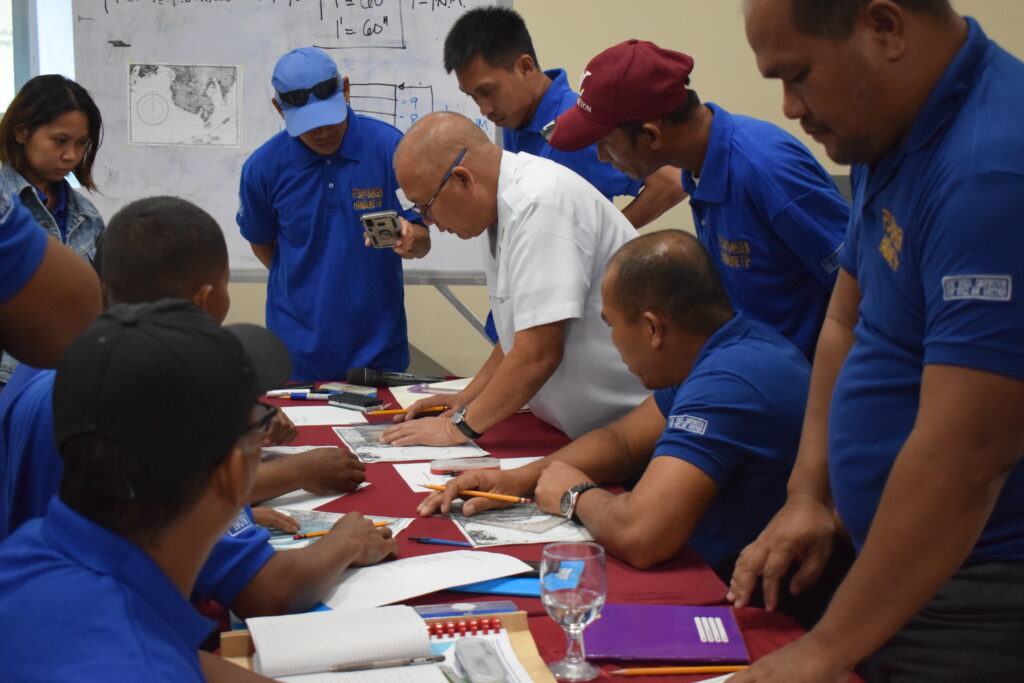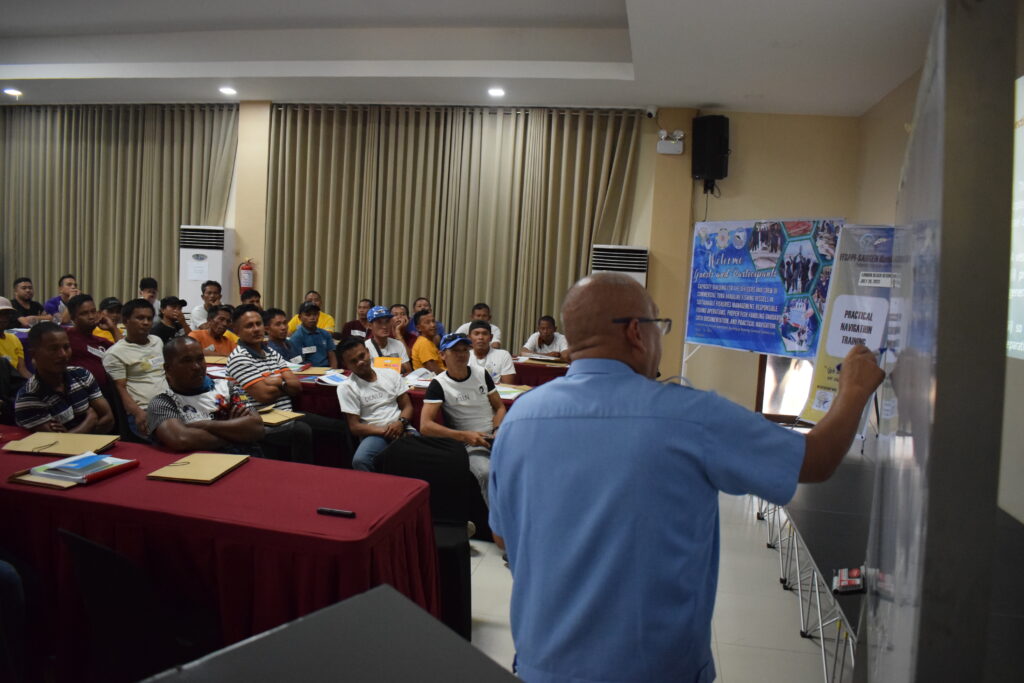The 2nd batch of Commercial Tuna Handliners also underwent practical exercise to develop their ability to use a compass to determine direction, read nautical charts and understand symbols, soundings, and coastal features, and develop their skills in estimating position based on course, speed, and time traveled.
Overall, the workshop in practical navigation was successful. BFAR is sure that by teaching the fishermen how to read nautical charts, utilize navigational tools, and evaluate weather patterns, they would be able to plan their expeditions more effectively and enhance the likelihood that they will catch successful fish.
Providing practical navigation training to fishermen can enhance their safety, efficiency, and sustainability in their fishing operations. These skills not only benefit the individual fishermen but also contribute to the overall well-being of the fishing industry and marine ecosystems.
Proper navigation training equips fishermen with the skills and knowledge needed to navigate safely through various weather conditions and challenging environments. Lastly, by improving their navigation skills, fishermen become aware of the regulations and can now operate their vessels in compliance with the law and ensure the sustainability of marine resources.



